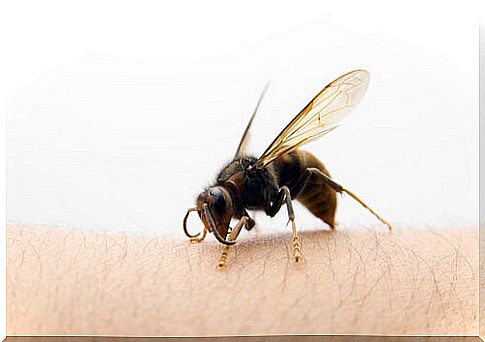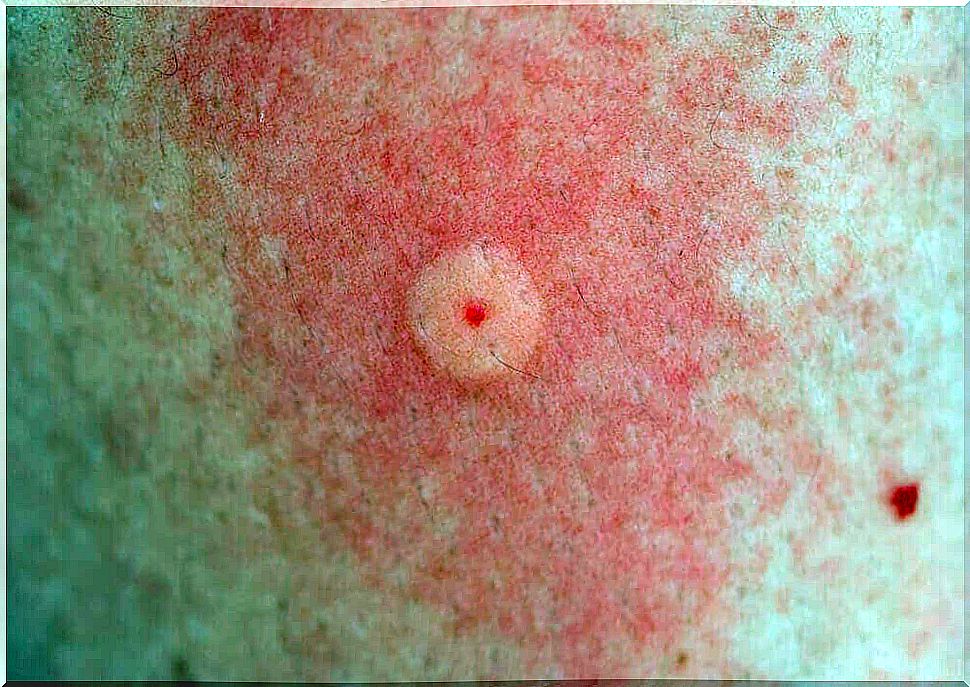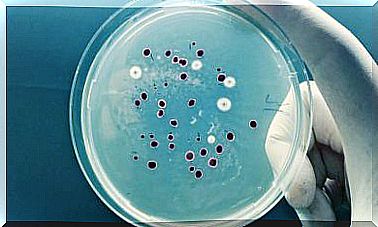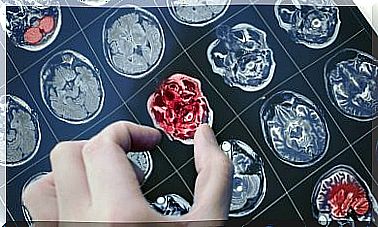What To Do When Faced With An Asian Wasp Sting?
An Asian wasp sting is only serious in a small percentage of cases. Still, it is a bothersome episode that causes severe symptoms. The danger is that whoever has been attacked will have an allergic reaction.

The sting of an Asian hornet is an episode that must be approached with care. In most cases, it does not generate serious consequences, but there are also cases in which it can lead to death. In fact, deaths have already been registered for this cause.
The Asian wasp was first detected in Europe in 2004. It is so called because it comes from Southeast Asia, although it is also known by the name of black wasp, due to its color. From the Gallic lands it spread to other countries on the continent and reached Spain in 2010.
The sting of an Asian wasp inoculates more venom than that of a normal wasp. The evolution of the episode depends on the person who was attacked. If it is someone who has an allergy to these types of insects, the situation can be serious. Three people died from this cause in Spain in 2018, and in 2019 there have been two deaths for the same reason.
The sting of the Asian wasp

It is important to note that the sting of the Asian hornet only causes death in 0.08% of cases. This is a very low rate. Even so, in all the people who are attacked by this species a more painful reaction occurs than that caused by a common wasp. This is because it is larger and has more venom.
The Asian wasp, whose scientific name is Vespa velutina , is an insect that can measure up to 3.5 cm. The most characteristic thing is that size and the black color of its body, which distinguishes it from European wasps. Unlike bees, these wasps can sting the same person several times.
The main risk in the Asian hornet sting is that it results in an allergic reaction of the immune system. The complex thing is that, in most cases, it is not possible to know in advance if this type of reaction is going to occur in a specific person or not. There is no evidence to predict allergy.
Effects of the sting
The first thing the Asian hornet sting causes is a sharp pain, like a prick from a large pin. Then a strong stinging is experienced, similar to that produced by a burn. Then a wide area of the skin becomes inflamed and pain is experienced for 24 hours on average.
One of the risks is that these insects attack sensitive areas such as the mucous membranes of the mouth, eyes, or nose. It should also be noted that Asian wasps release a marking pheromone from their stinger, and this prompts the rest of the hive to attack.
If there is an allergic reaction, there is a risk of anaphylaxis between 30 and 60 minutes after the sting of the Asian hornet. This reaction has four degrees:
- Grade I: there is generalized urticaria, itching, anxiety and discomfort.
- II : inflammation of the mucous membranes, feeling of tightness in the chest, abdominal pain, nausea, vomiting, diarrhea and dizziness.
- Grade III : difficulty in breathing, swallowing and making sounds. Confusion and feeling of death.
- IV : all of the above, plus hypotension, collapse, incontinence, bluish discoloration of the skin, and loss of consciousness.
How to Handle an Asian Wasp Sting

Asian wasps only attack if they feel threatened. So the first thing is not to approach their nests, or try to kill or attack them when they appear. It is important to be careful when exploring in the bushes or in the places where the firewood is accumulated. The best way to avoid problems is to prevent them.
If an Asian wasp sting occurs, it is advisable to apply cold to the affected area. This will help reduce inflammation and pain. Vinegar compresses can also be applied to obtain the same effects. If there is a lot of discomfort, it is advisable to apply a corticosteroid cream and take oral antihistamines and, if necessary, oral corticosteroids.
An allergic reaction is a medical emergency that must be attended to in the shortest possible time. If the person has a history of these types of allergies, they should go to the hospital as soon as possible. The same happens when a very abrupt reaction is detected immediately. Only 3% of people are allergic, but it is not completely certain whether or not they belong to that group.









